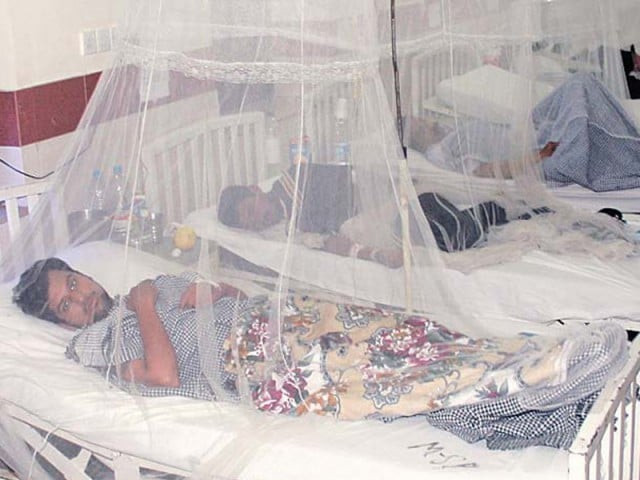Stinging issue: Another 61 dengue cases logged in last 24 hours
Rawalpindi has seen 1,672 confirmed cases this year

A file photo of dengue patients. PHOTO: FILE
A total of 61 dengue fever cases were confirmed in Rawalpindi during the last 24 hours, taking the total number of cases reported in the city this year to 1,672, with three deaths. Punjab province has seen 1,952 cases this year.
The Rawalpindi health department said that over 800 cases have been reported from Rawal Town, which is located in the heart of Rawalpindi city.
Meanwhile, health officials said that teams constituted for indoor and outdoor surveillance and volunteers brought in for awareness campaigns have become overworked and stressed.
Talking to The Express Tribune, a health official in the Rawalpindi health department who asked not to be named said, “We have made all possible efforts to control the disease, but day-by-day the situation is getting worst in the city.”
The official said all of the workers who are working for controlling the spread of the disease have become over worked and they are not even getting a weekly day off, means working seven days a week.
“They leave their homes at around 6:30 am and after attending meetings and working throughout the day, they go back home after 11 pm,” he said.
The official said the working hours have become more challenging for the female staff.
“If they continue to work like this, a time will come when their tiredness will influence their performance,” said the official.
Meanwhile when contacted Executive District Officer (Health) Dr Arshad Ali Sabir said all efforts are being made for the prevention and control of the dengue fever in the city.
He said that larvae are still being found inside people’s homes, which is a major reason behind the continuing spread of the disease.
“Majority of the larvae were found in drinking water storage containers inside homes and in buckets of water stored in washrooms,” he said.
Indoor teams comprising of two women visit homes to locate larvae and destroy them, while also educating people on the prevention and control of the disease, he said.
On the workload issue, he said, “It is a time of crisis. All the people associated with prevention and control of the disease need to work round-the-clock to tackle the situation.”
He further said that they get breaks throughout the year, so it is not a big deal if they must work seven-days-a-week for a short while.
“It is expected that the temperature will fall within the next 15 to 20 days, which will reduce the presence of mosquitoes and will naturally bring down the number of its cases,” the EDO health said.
Published in The Express Tribune, October 18th, 2015.



















COMMENTS
Comments are moderated and generally will be posted if they are on-topic and not abusive.
For more information, please see our Comments FAQ